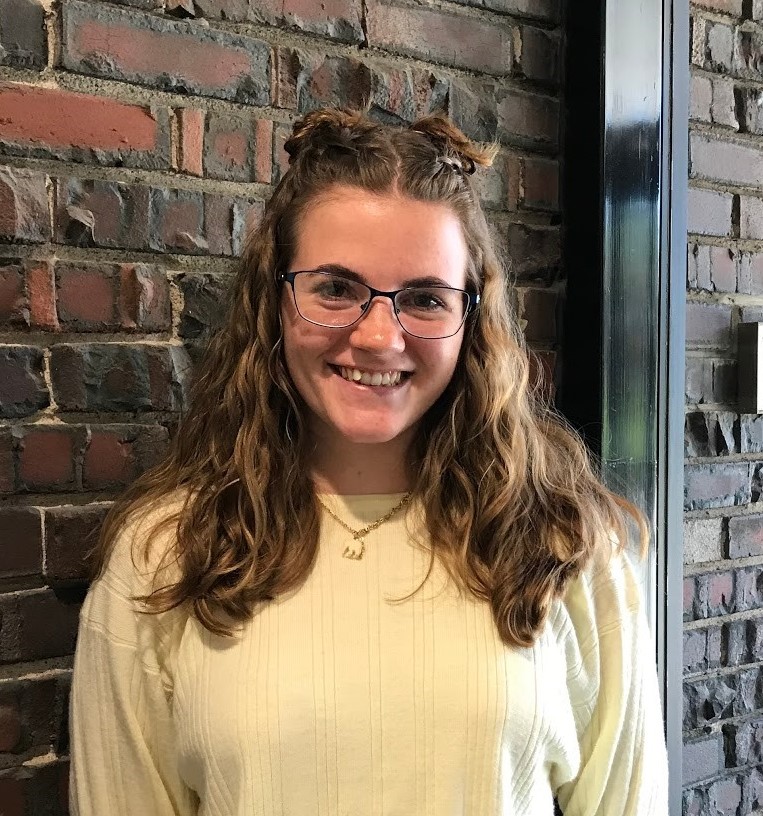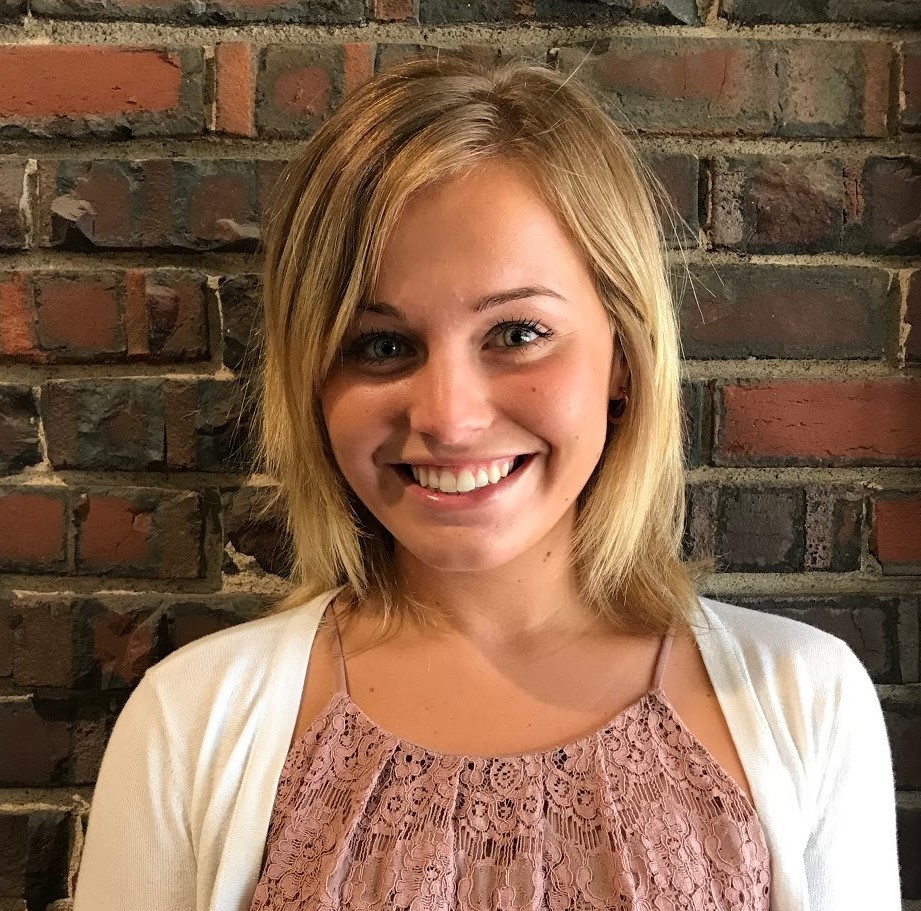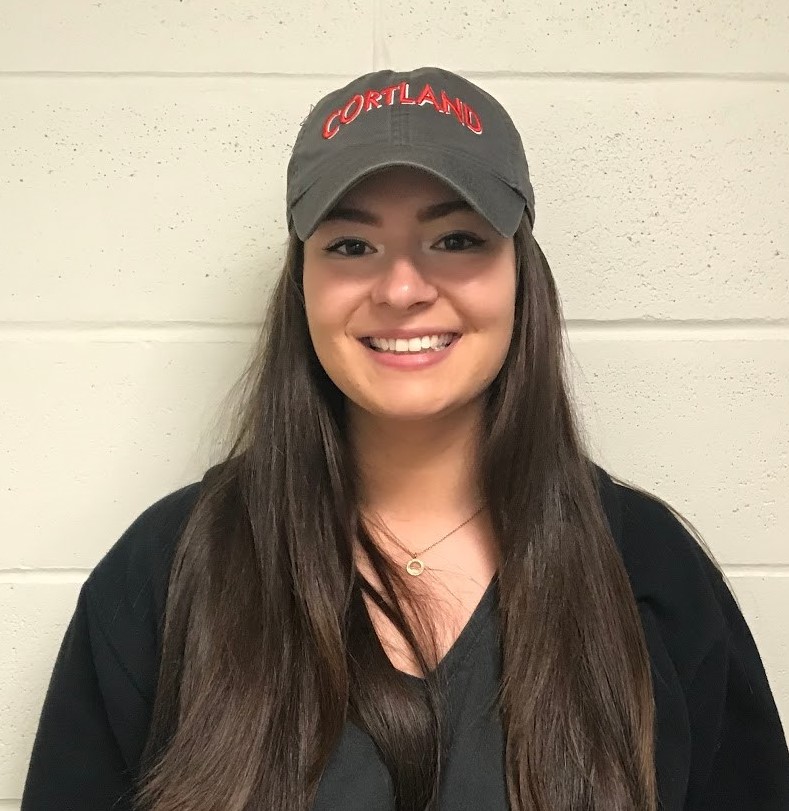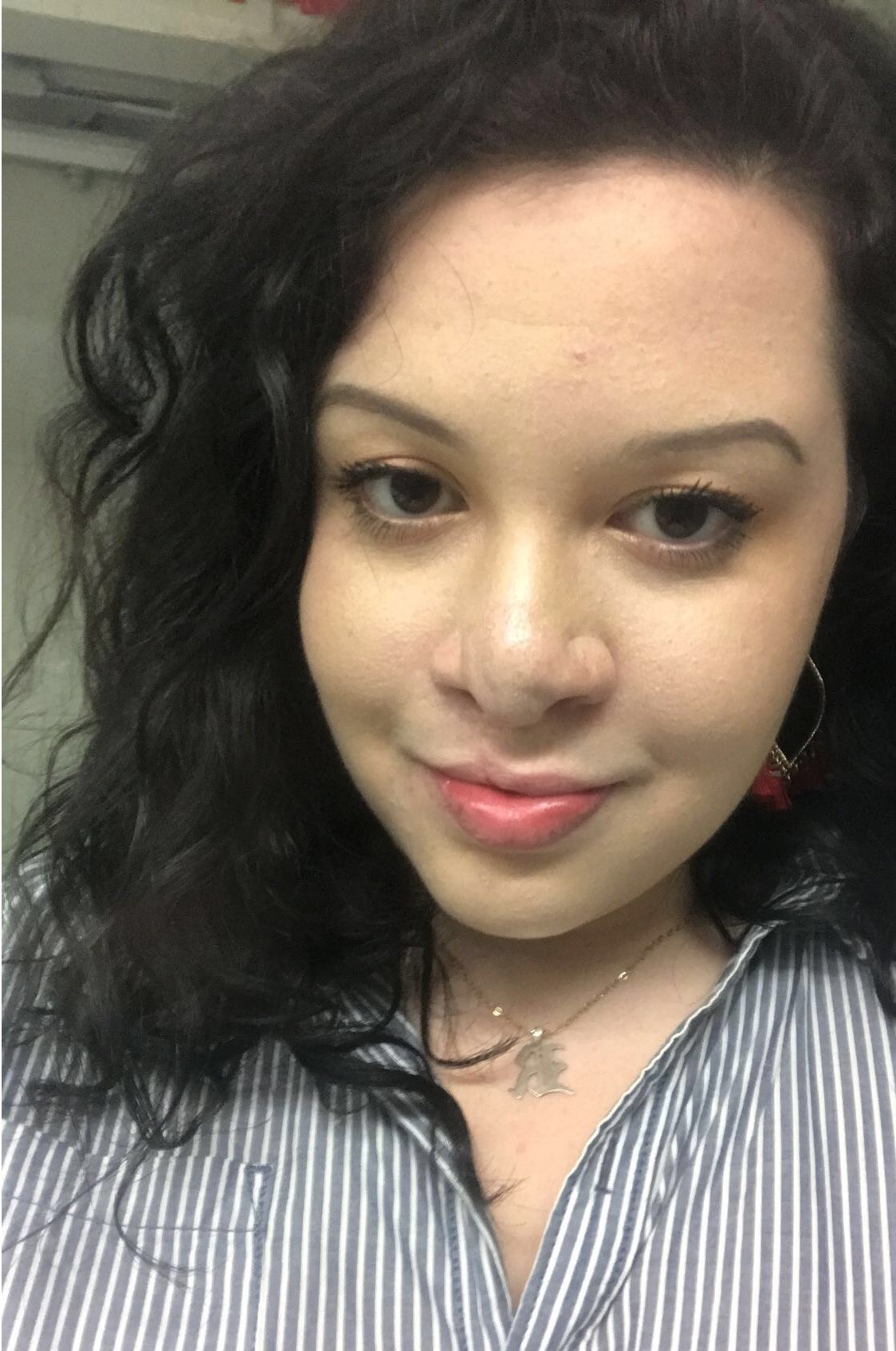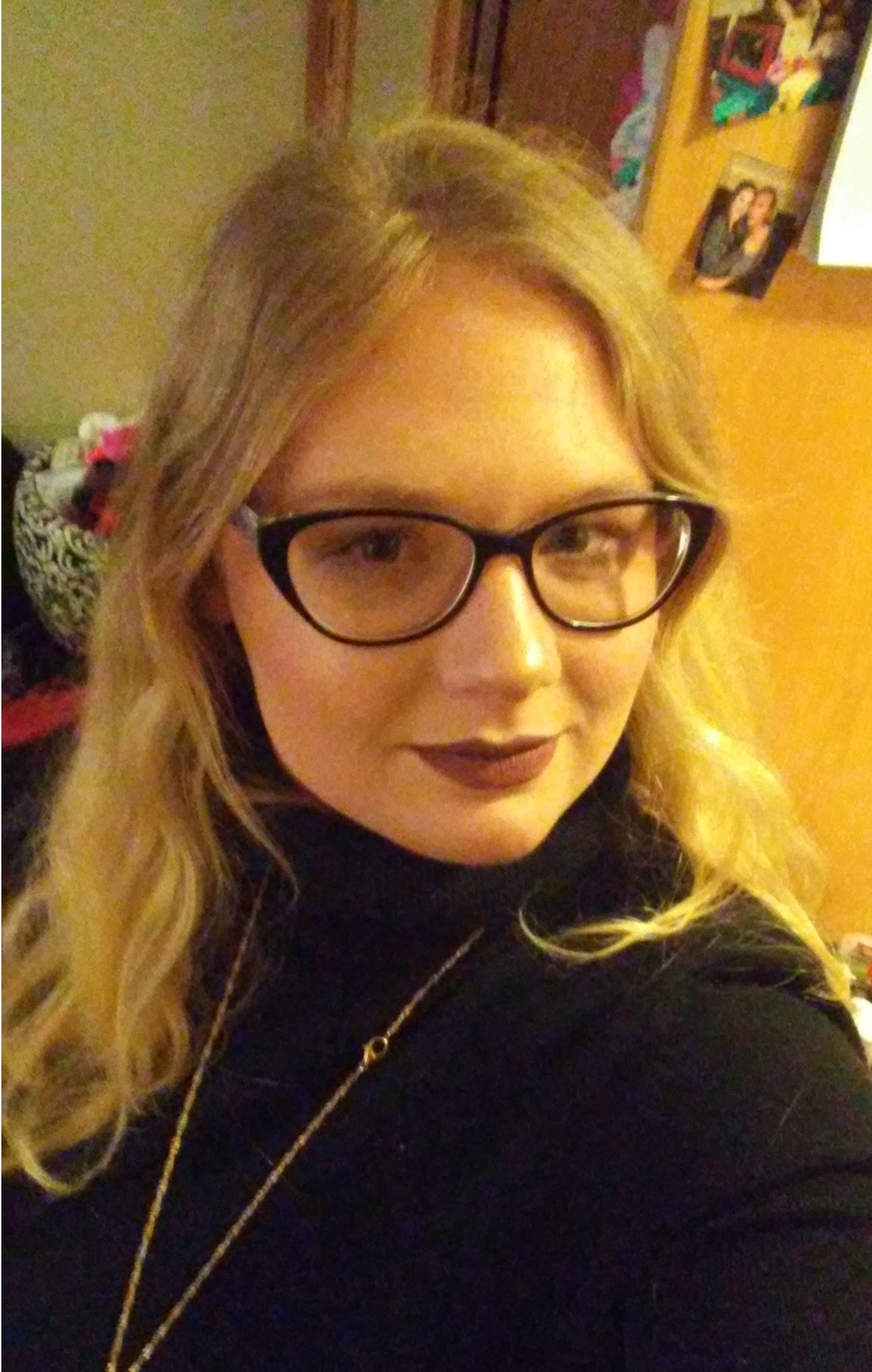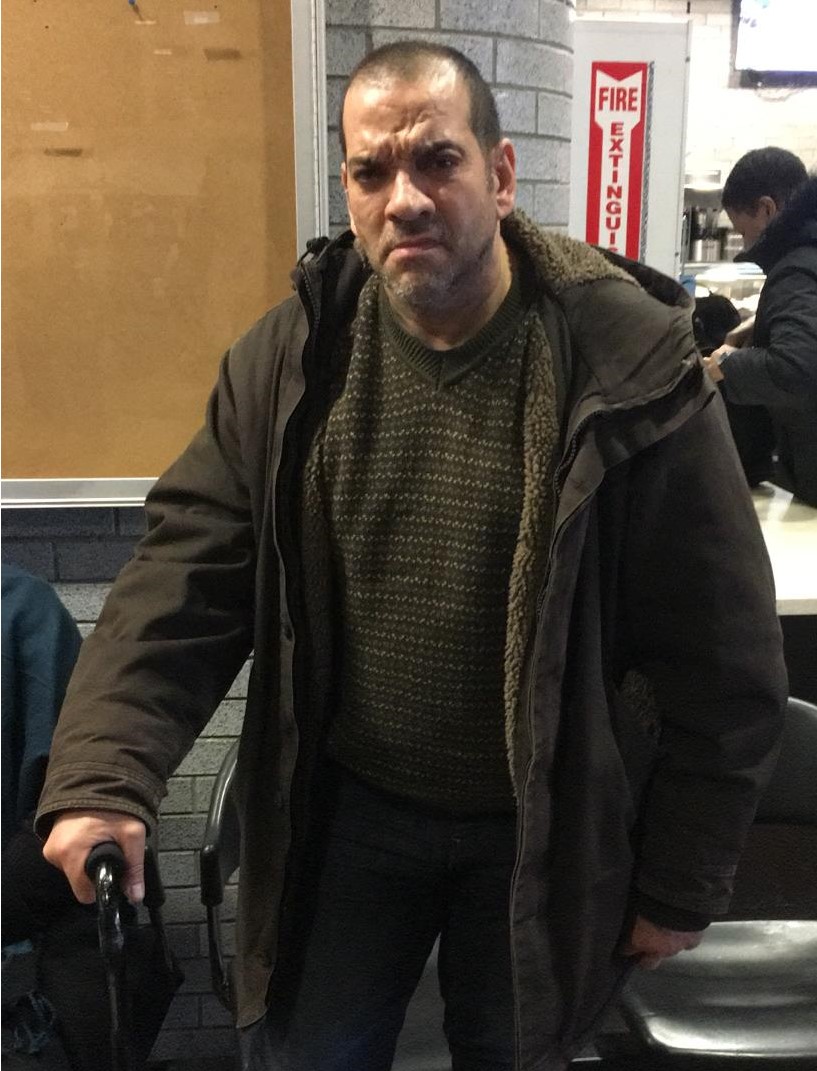Posts Tagged ‘textbooks’


I’m a senior at SUNY Cortland majoring in Sociology with a minor
in Anthropology. Once I graduate, I plan on getting a job working at a
children’s home in case management.
I pay for school with private loans. Because my parents don’t
qualify, I don’t receive TAP or the Pell Grant. I have no option but to take
out loans. I have to work back home and on the weekends when I’m at school to
help pay for college and other expenses that I have.
When it comes to textbooks, my parents help pay for them, but I
pay out of pocket for groceries because I don’t have a meal plan. I decided to
take out another loan so that I could afford a meal plan, but that hasn’t gone
through yet.
Since my dad makes too much, I don’t qualify for financial aid,
but my parents still can’t afford to send me to school so my only option was to
take out multiple loans and have my dad co-sign them. My parents have already
put my two siblings through school, and we all have had to take out loans
because it’s just not possible for my parents to pay for us all to go.
My biggest concern is that when I leave school I won’t get a job that will allow me to pay off my loans, which I have to start making payments on six months after graduating. If SUNY was fully funded, I wouldn’t have to worry about paying all these loans back, and it would also open doors for those who can’t afford to attend school.


I am a senior at SUNY
Cortland studying Sociology with a concentration in Criminology. My plan after
graduation is to go into social work, and I’m currently looking at a possible
job in Maine that doesn’t require a master’s degree. I can’t afford graduate
school, and my loans are already collecting interest so I have no option but to
only look at jobs that don’t require another degree.
I currently pay for
school with subsidized and Stafford loans and a small amount of financial aid.
I don’t receive TAP, and I only receive a small amount of aid from the Pell
Grant. In order to pay for school, I have to work. I work at the child care
center at the YWCA before and after school.
I sometimes use the
money I make from my job to pay for textbooks, and my parents help out when
they can, but oftentimes if I can’t afford a textbook, I just don’t get it. I
have had textbooks that cost more than $100, and I just can’t afford that. I have
no option except to not buy the book.
I don’t have a meal
plan, so I pay for groceries out of pocket, and sometimes my parents help pay
for food. If I didn’t receive financial aid, going to school wouldn’t be an
option for me, or I would have no choice but to co-sign another loan.
A fully funded SUNY
system would allow those students who can’t afford school to have the ability
to attend, and it would help current students stay in school without fear of
paying loans back. Some students have no choice but to leave college because,
financially, they just can’t do it. How can anyone start a life after graduating
when they’re so deep in debt?
Not only is paying for school a challenge I face, but paying for parking is another financial obligation that I have. I would say that I have paid close to $300 in parking tickets since I have been here, and the cost of a parking pass is huge.
The biggest challenge that I’ve faced as a SUNY student is having my classes blocked when I can’t pay my bill. I wasn’t able to register for classes that I needed because I couldn’t make my payment. This could prevent students from graduating on time because certain classes are only offered at specific times, and if students can’t make their payments then they won’t be able to register when the class is offered. This forces students to pay more and stay for another semester.


I’m a senior at SUNY Cortland majoring in philosophy. After I
graduate, I plan on working for a nonprofit organization. I pay for school with
both financial aid and loans.
I receive TAP and
the Pell Grant, and I also have a part-time job during the semester.
When it comes to textbooks, I usually don’t buy them because I
can’t afford them. I try to find an online PDF version of the textbook, but if
I can’t find that, then I have no option but to not have the book for class.
For food, my financial aid covers the cost. I use it to buy groceries.
I depend on my financial aid, and this year I didn’t receive as much as previous semesters. My financial aid went from $4,000 to $400 because my sister moved out so my parents were expected to have that extra money to pay for my tuition. My mom had no choice but to take out a loan to help cover the costs of school.
We need a fully funded SUNY system so that all students have the
opportunity to attend college, and they won’t be worried about paying for it.
My biggest challenge as a SUNY student has been paying for school and worrying
about how my parents are going to help me pay for it. A student’s main focus should
not be paying for school; they should be focused on pursuing their education.


I’m currently a senior studying international studies and
political science at SUNY Cortland. After graduation, I plan to work abroad,
specifically in the Australian government.
In order to pay for school, I use financial aid as well as out of
pocket payments. I receive both TAP and the Pell Grant to help cover the costs
of school, but I also work part-time on campus for 20 hours a week on top of
taking 19 credits. I use the money I make working to help pay for groceries,
but I also use the student food cupboard on campus.
I pay for textbooks out of pocket with money from working. They’re
expensive every semester, and I’m concerned that I won’t graduate on time and
will have to pay for even more books all over again. There are classes that I’m
required to take that are only offered at specific times, and I still haven’t
been able to take them.
College should be accessible to everyone, and by making SUNY fully
funded, it will be. Not everyone has the opportunity to attend college and
financial aid doesn’t always cover everything, so students are left responsible
to pay for the remaining costs. As students, our concern shouldn’t be having
enough to eat. We should be focused on our education.
The biggest challenge that I’ve faced as a SUNY student is
trying to afford both housing and food. My financial aid doesn’t cover housing
because it is all spent on paying for my tuition, so I have to find ways to pay
for it myself.


I’m a senior at SUNY Cortland studying Teaching English as a
Second Language. After graduation, I plan on getting a teaching job and to
begin working towards paying off my extensive student debt.
I pay for school in a few ways. I take out student loans and work a few part-time jobs, such as driving for Uber, cleaning houses, and interpreting for various places in the Syracuse area. As for TAP, I’m not eligible because I was working full-time, and I made too much money two years ago to qualify. I only receive about $200 from the Pell Grant, and I work as much as possible so that I am able to pay for college. As for textbooks, I use financial aid to pay for them. I don’t receive SNAP, so my husband and I pay out of pocket for groceries.
If I didn’t receive financial aid, I would not be able to go to
school because it is so expensive. I have had no choice but to take out student
loans, so I’m hoping to get a job after graduation that will help to pay off my
student loans. I have no worries about graduating on time, but I am a
non-traditional student.
SUNY should be fully funded and affordable so that students have the ability to attend college and ultimately have more opportunities and a better quality of life where they’re not forced to work low-paying jobs.


I am a stay at home mother. I just had a baby girl a year and a half ago and have another child on the way. I decided to come to BMCC to study Business Management so that I can have a qualification when I decide to go back into the world of work. I aspire to transfer to a four-year college to study business management, hopefully Zicklin School of Business because I want to open my own business someday.
I don’t qualify for any of financial aid because my household income is considered to be above the threshold. So everything I need for school comes out of my pocket. Because I did just have a baby and another one on the way, school is expensive for me. I have to buy textbooks and make sure that I’m in class for the minimum required time. One textbook can come to about $180 and the transport money does add up.
My strategy to mitigate costs is to take only one or two
classes per semester. This unfortunately will delay my graduation which is not
ideal but I have no choice at the moment.


When I first started high school, I knew the scholarship I needed to receive. If I didn’t get it, there was a chance I wouldn’t be going to college. After four years of dedicating my life to studying, taking AP classes (with tests I could barely afford to take), and eliminating any chance of a social life which could distract me from my schoolwork, I am proud to say I received the private scholarship I dreamed of. So I did all that and burned myself completely before even going to college. While I was extremely grateful for the scholarship that would help me with tuition, I had no idea that financial burden was inescapable in college.
I am currently a sophomore at Hunter College. I came to Hunter as a pre-med student, but being so burned out freshman year, I saw my A+s that I got in high school transform into Cs. My scholarship was threatened and I was devastated. At the beginning of sophomore year, I decided to try anthropology courses and I fell in love. However, I had to get a part-time job to pay for my monthly metro cards and textbooks. Working almost every night after class drained every bit of energy I had and I could barely stay awake while studying. I struggle to maintain the 3.5 GPA that my scholarship requires me to maintain. Textbooks, especially online textbook codes have destroyed my bank account. Food and transportation remain major struggles. Why do students have to pay over one hundred dollars each month just to be able to get to their classes or to attend their jobs so they can have money to pay for all the costs of being a student?
I dream of getting a PhD in Anthropology and becoming an archaeologist. However, field schools for archaeology are extremely expensive and fieldwork is usually done abroad. I have no way of paying to travel to obtain these experiences and I fear being in major debt. I am honestly afraid of graduate school, as I know that the extreme financial burden that awaits.


I was previously a part of ASAP and received stipends for textbooks and metro cards. I got tuition covered and with receiving the Pell Grant, I had money leftover that went toward gas and food.
This was my first semester at QC, and I get financial aid to cover my tuition, but it’s my first time having to pay for textbooks. The bill came to $380. There was an Italian book I needed. So one of my friends made copies for me this semester luckily. I had a larger refund when I was in ASAP which meant that extra money could go towards my son- clothing, gas, rent, food.
I’ve had to budget a lot more this semester. I wasn’t able to buy a laptop that I needed for school. I try to use my phone to write essays which is horrendous. I got a zero on a paper because it didn’t go through on my phone and I don’t have a laptop. If I still had the support of ASAP, I’d have more leftover Pell money and could’ve bought a laptop and avoided this problem and future problems.


I’m a Professional Writing major with a minor in Anthropology, and this is my fifth year here at SUNY Cortland. I’m planning to go to grad school after this to study Anthropology and Political Science. Right now, I take out private loans. I think I got the Pell Grant for about a semester, and it was only like $50. I don’t receive TAP, and I couldn’t even qualify for the Excelsior Scholarship.
I’m a student director in one of the campus buildings, and I also pick up shifts at Auxiliary Services as a floater. So I’ll wash dishes or cook chicken on the grill for six hours straight. In general, I work anywhere between 12 to 25 hours a week. I’m always looking for more work because I don’t get any money for rent or food, and that takes away from study time and homework.
I applied for food stamps, but I wasn’t eligible because I didn’t work enough to qualify. They don’t take into consideration that I’m also a full-time student. I’m already a year late to graduate, but I’ll be on track to graduate this year. If it wasn’t for working so much, I’m sure I would’ve graduated on time for my degree. We need a fully-funded SUNY so people like me can graduate on time and not have to worry about going to grad school because of all the private loans they’ve already taken out. I’m walking away from undergraduate degree with almost $100,000 worth of student debt. And that’s from a state school. I’ve already started paying those loans off for three years already. That’s another thing I pay for with work, besides car insurance, my car payment, internet, electricity, rent, food, and textbooks.
I don’t pay more than $300 a semester in books. If a semester cost me more than 300 bucks in textbooks, I would weigh which books are more valuable and get rid of the other ones. There are also some classes that require fees in order to take them. I took art for three semesters, and that was $200 for each course each time, totaling $600. And that doesn’t even cover materials. It covered studio space and workshop equipment.
My biggest challenge as a SUNY student has been finances. I worry more about my finances than I do about passing each class. I know I’m at a major disadvantage in class because I have to work so much more just to make sure that I have a roof over my head while I’m in school, or just to make sure the internet doesn’t cut off so that we can finish our homework. I think if we had a much lower tuition or if there were less hurtles to have to jump through for a student like me, then I might be able to not be in as much debt, and then I would be able to go to grad school without the fear of not just getting rejected, but also of it not being paid for.


I get financial aid but it’s tooth and nail fighting for it. Because the financial aid office is so understaffed it can be very challenging to get the aid I need. I waited an entire semester to get my refund check. I spent money on a credit card to buy textbooks.
The elevators are horrific, like I’m disabled, the elevators and the escalators are never functioning. They do these band-aid fixes and they’re constantly still in disrepair.
I take the shuttle from the subway station, it is reliable but it gets super packed, they definitely need more buses.
